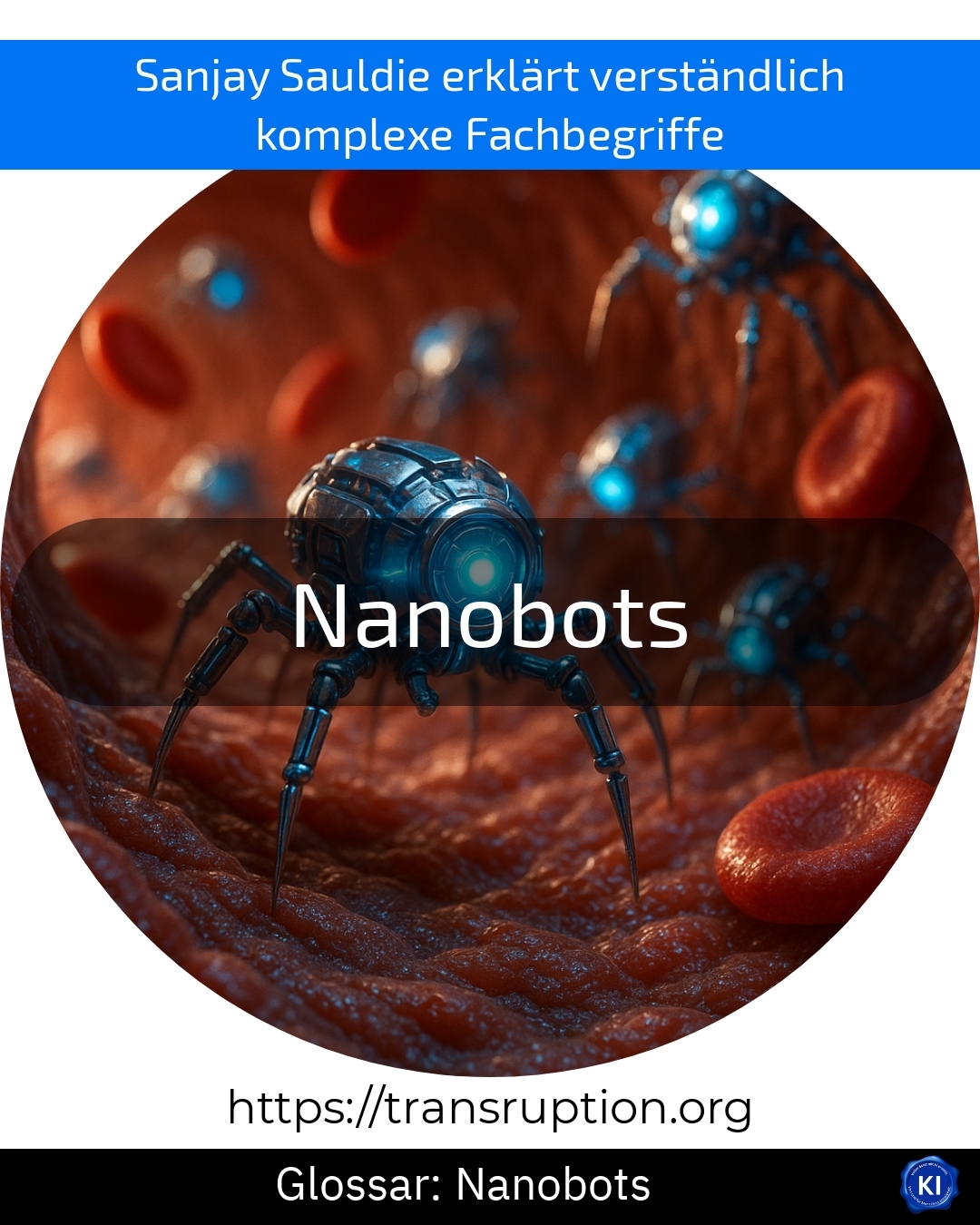The term "nanobots" is particularly at home in the fields of nanotechnology, artificial intelligence and Industry and Factory 4.0.
Nanobots are tiny robots that are often only a few millionths of a millimetre in size. They are built from special materials and can perform certain tasks directly at the smallest level. These nanobots are usually controlled automatically or with the help of intelligent programmes.
An illustrative example: In medicine, nanobots can be programmed to recognise and treat diseased cells directly in the human body. In the future, they could conceivably clean blood vessels or destroy cancer cells without damaging healthy tissue. This means fewer side effects for patients and more precise treatments.
In industry, too, nanobots help in the production of particularly small electronic components or clean hard-to-reach surfaces in machines. They make production processes more efficient and enable completely new products.
Nanobots are considered one of the most exciting technologies of the future. They offer great opportunities, for example for the healthcare industry or the production of new materials, but are also an example of how digitalisation and miniaturisation are changing our everyday lives.















